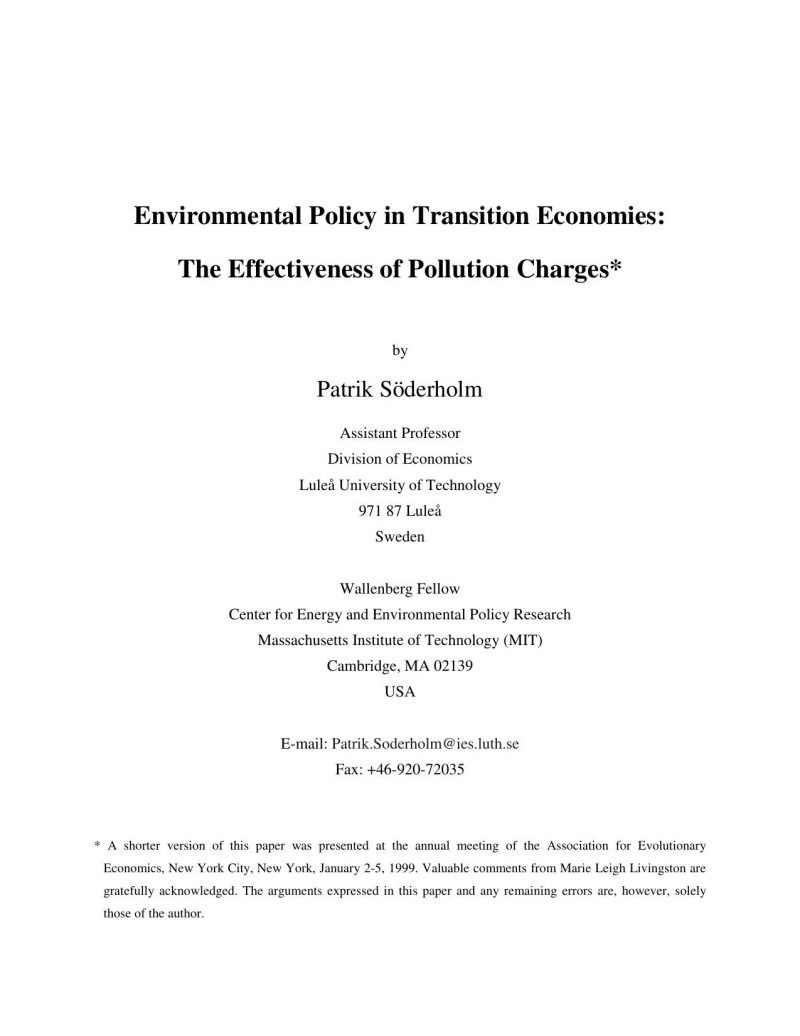Environmental Policy in Transition Economies: The Effectiveness of Pollution Charges
Patrik Söderholm
May-99
Most economists and analysts claim that extended use of pollution charges in environmental policy will have substantial efficiency advantages in countries undergoing transition to market economies. Essentially this paper challenges this view and argues that the proposed policy presumes the existence of an already functioning institutional framework. By focusing on the Russian case, the paper identifies and discusses a number of reasons why it has become hard to implement pollution charges in an economic system where behavioral patterns and jurisdictions established in the past are still prevalent. Institutional obstacles both at the firm level and within Russian regulatory agencies are discussed. The paper concludes that it is probably more appropriate to view environmental problems in transition economies not as market imperfections per se, but as results of institutional inertia in the economic and political systems. As a consequence the choice of pollution control strategy becomes much more complex than is implied by economic theory. The paper ends with a discussion of command and control regulation and input taxes as alternative ways to control pollution in Russia.
Key words: Russia, Transition economies, Environmental policy, Pollution charges, Institutional impediments



